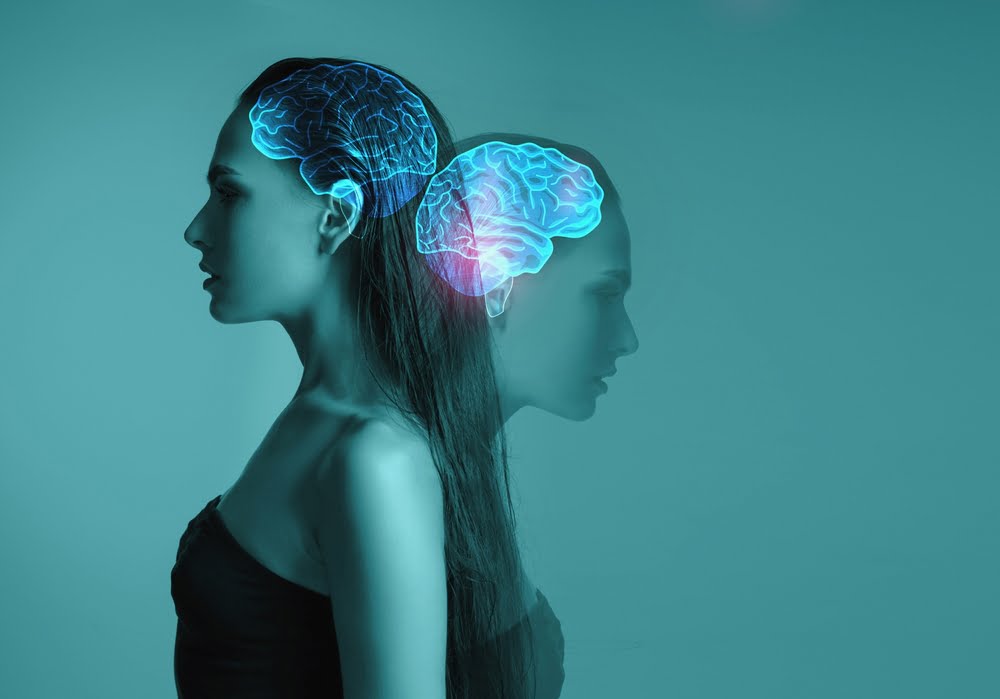
We have talked about the many industries that have been shaped by artificial intelligence. The healthcare industry is among them. In one of our articles, we mentioned that many nurses have used AI to provide better services to their patients.
You might be surprised to learn that artificial intelligence is changing the mental health profession as well. According to one report, the market for AI in mental health services is projected to grow by 38.87% a year between 2023 and 2031.
As AI-powered solutions revolutionize mental health, people can benefit from innovative tools and support systems that can assist them in improving their well-being. AI is reshaping the landscape of mental health and stress management by providing accessible solutions for mental health and stress management.
Zara Abrams wrote a great article for the American Psychological Association about the benefits of AI in the mental health profession. Abrams interviewed some of her colleagues about the merits of AI and how it has changed their profession, including Jessica Jackson, PhD, who is a licensed psychologist in Texas.
“A lot of people get resistant, but this is something we can’t control. It’s happening whether we want it to or not,” said Jackson. “If we’re thoughtful and strategic about how we integrate AI, we can have a real impact on lives around the world.”
Whether it is chatbots that can provide a supportive ear, predictive analytics, virtual reality therapy, and mood tracking, artificial intelligence is augmenting traditional approaches and embedding itself into everyday life. It empowers people to take better care of themselves on a mental level as well.
As the global discussion surrounding redefining mental health unfolds, the idea of self-care has gained traction. Whether it’s getting to know what is HHC and how it can help you relax or making time to prioritize your mental health, there’s a lot you can do to take care of yourself.
The reality is that not everyone is fortunate enough to be able to have a strong external support system of family and friends at their disposal; that’s where AI comes in and picks up the slack for those who need a specific outlet or guidance. Let’s take a closer look at AI’s positive impacts on mental health and stress management.
AI Chatbots
A few years ago, we mentioned that AI technology has helped improve the quality of chatbots for marketing. However, AI can help create chatbots that offer a lot of other benefits as well.
It has been proven that the AI chatbot effectively allows users to express their feelings and thoughts in a safe, non-judgmental environment using an intelligent conversational agent. The AI chatbots are equipped with natural language processing algorithms, which allow them to engage in meaningful conversations, offer empathy, and make suggestions. Accessing these chatbots 24 hours a day, seven days a week, is possible.
AI chatbots are able to provide empathetic responses to users as a result of sophisticated algorithms that analyze input from the users. They help people cope, provide emotional support and coping strategies, and even assist them with relaxing exercises. The AI chatbots keep improving as they interact with users through learning and adapting so that they can receive the best possible experience. As a result, AI chatbots can also be used to identify individuals who might need professional assistance with a medical or mental health issue so that they can get the appropriate help they need.
Personalized Therapy
AI algorithms excel at processing vast amounts of data and extracting meaningful patterns. This ability has enabled the development of personalized therapy and treatment plans for mental health patients.
AI algorithms can offer tailored recommendations by analyzing behavioral patterns, medical history, and responses to therapeutic interventions. AI algorithms also offer support and guidance to mental health professionals, helping them identify potential issues like relapse or suicidal ideation. AI technologies can also monitor mental health patients remotely, allowing quicker emergency intervention.
AI can analyze data from cognitive behavioral therapy (CBT) sessions and provide insights into the effectiveness of different techniques. This feedback can help therapists refine their treatment plans and make informed decisions. Additionally, AI can identify medication effectiveness and side effects patterns, leading to more personalized medication choices.
Predictive Analytics for Early Intervention
It is crucial to intervene early on with mental health conditions if we are to manage them effectively. In order to identify mental health problems, AI’s predictive analytics can be used to analyze social media posts, smartphone usage patterns, and physiological indicators. In order to alert individuals or healthcare professionals to potential risks, artificial intelligence algorithms can detect subtle changes in behavior or mood.
AI can detect a possible decline in mental health when it detects a sudden increase in the negative language in social media posts or a withdrawal from social interactions. As a result of this early warning system, mental health problems can be prevented, and timely support can be provided, helping to prevent mental health problems from developing.
VR Exposure Therapy
Virtual reality (VR) combined with AI is becoming an increasingly powerful tool for exposure therapy. In exposure therapy, individuals are slowly exposed to anxiety-inducing situations in order to overcome their fears and anxieties. A VR simulation that AI powers is a controlled environment that mimics the triggers they experience on a regular basis.
Someone who fears flying can undergo a virtual reality simulation of flying. Artificial intelligence can adjust the intensity of an experience based on an individual’s comfort level, gradually desensitizing them. This immersive therapy allows individuals to confront and manage their fears in a safe and controlled environment, leading to more effective treatment outcomes.
Mood Tracking and Self-Care
With the advent of wearable devices and AI-powered applications, tracking and analyzing our moods and stress levels has become easier. AI algorithms can provide valuable insights into mental well-being by collecting information about sleep patterns, physical activity, heart rate variability, and daily routines.
As a result of these insights, self-care routines may be influenced in a positive way. Artificial intelligence, for instance, can provide suggestions about when a person should exercise, meditate, or take breaks throughout the day. AI can also give you personalized feedback about managing stress and recommend ways to relax.
AI-Powered Privacy and Convenience
Among the biggest obstacles to mental health treatment that most people face are cost and privacy issues. Although conversations regarding mental health are certainly expanding, many people remain reluctant or unwilling to seek the treatment they need. Afraid of judgment or lack of empathy, many never reach out for the appropriate mental health help.
During the pandemic, thousands of patients were forced to continue their ongoing therapy online through video or teleconferencing. This initially seemed an inconvenience until the possibilities for expansive coverage began to be explored. Within a few months, many mental health services became discreetly available online, including therapy and medications.
Online platforms that AI powers have created virtual therapist couches, where patients can talk to a professional without leaving their homes or other comfort zones. Thousands of people who would otherwise not seek help with their emotional health now have more options.
While AI should never replace human connection and professional care, it can serve as a valuable complement, extending support and resources to needy individuals. As AI continues to evolve, we can expect further advancements in mental health care, fostering a brighter future for emotional well-being and stress management.
- SEO Powered Content & PR Distribution. Get Amplified Today.
- PlatoData.Network Vertical Generative Ai. Empower Yourself. Access Here.
- PlatoAiStream. Web3 Intelligence. Knowledge Amplified. Access Here.
- PlatoESG. Automotive / EVs, Carbon, CleanTech, Energy, Environment, Solar, Waste Management. Access Here.
- BlockOffsets. Modernizing Environmental Offset Ownership. Access Here.
- Source: https://www.smartdatacollective.com/harnessing-artificial-intelligence-for-mental-health-management/
- :has
- :is
- :not
- :where
- $UP
- 2023
- 2031
- 24
- a
- ability
- Able
- About
- accessible
- accessing
- According
- activity
- Additionally
- advancements
- advent
- afraid
- Agent
- ago
- AI
- AI chatbot
- AI-powered
- Alert
- algorithms
- allow
- Allowing
- allows
- also
- Although
- American
- among
- amounts
- an
- analytics
- analyze
- analyzing
- and
- applications
- approaches
- appropriate
- ARE
- around
- article
- articles
- artificial
- artificial intelligence
- AS
- assist
- Assistance
- Association
- At
- available
- based
- basis
- BE
- became
- become
- becoming
- been
- began
- behavior
- benefit
- benefits
- BEST
- Better
- between
- Biggest
- breaks
- brighter
- but
- by
- CAN
- Can Get
- care
- certainly
- changed
- Changes
- changing
- chatbot
- chatbots
- choices
- closer
- cognitive
- colleagues
- Collecting
- combined
- comes
- comfort
- Complement
- conditions
- connection
- continue
- continues
- control
- controlled
- conversational
- conversations
- Cost
- coverage
- create
- created
- crucial
- daily
- data
- day
- Days
- decisions
- Decline
- detect
- developing
- Development
- Devices
- different
- discussion
- do
- Early
- easier
- Effective
- effectively
- effectiveness
- effects
- embedding
- emergency
- emotional
- Empathy
- empowers
- enabled
- engage
- enough
- Environment
- equipped
- Even
- everyday
- everyone
- evolve
- Excel
- Exercise
- expanding
- expansive
- expect
- experience
- Explored
- exposed
- Exposure
- express
- extending
- external
- Face
- family
- fears
- feedback
- feelings
- few
- fluid
- flying
- For
- forced
- fortunate
- fostering
- friends
- from
- further
- future
- gained
- get
- getting
- Give
- Global
- gradually
- great
- guidance
- Happening
- Harnessing
- Have
- Health
- Health Care
- health services
- healthcare
- healthcare industry
- Heart
- help
- helped
- helping
- her
- history
- Homes
- HOURS
- How
- However
- HTTPS
- human
- idea
- identify
- if
- immersive
- Impact
- Impacts
- improving
- in
- Including
- Increase
- increasingly
- Indicators
- individuals
- industries
- industry
- influenced
- information
- informed
- initially
- innovative
- input
- insights
- instance
- integrate
- Intelligence
- Intelligent
- interact
- interactions
- internal
- intervene
- intervention
- interviewed
- into
- issue
- issues
- IT
- itself
- Jackson
- jpg
- Keep
- Know
- Lack
- landscape
- language
- leading
- LEARN
- learning
- leaving
- Level
- levels
- Licensed
- Life
- like
- Lives
- Look
- Lot
- make
- Making
- manage
- management
- managing
- many
- many people
- Market
- May..
- meaningful
- Media
- medical
- medication
- mental
- Mental health
- mentioned
- merits
- might
- Monitor
- months
- mood
- more
- most
- Natural
- Natural Language
- Natural Language Processing
- Need
- negative
- never
- now
- obstacles
- of
- offer
- on
- ONE
- ongoing
- online
- Options
- or
- order
- Other
- otherwise
- our
- out
- outcomes
- outlet
- Overcome
- pandemic
- patients
- patterns
- People
- person
- Personalized
- physical
- Physical activity
- Picks
- plans
- Platforms
- plato
- Plato Data Intelligence
- PlatoData
- positive
- possibilities
- possible
- Posts
- potential
- powerful
- powers
- Predictive Analytics
- prevent
- Prioritize
- privacy
- problems
- processing
- profession
- professional
- professionals
- projected
- proven
- provide
- provided
- providing
- quality
- quicker
- Rate
- reach
- real
- Reality
- receive
- recommend
- recommendations
- Redefining
- refine
- regarding
- regular
- Relax
- remain
- replace
- report
- resistant
- Resources
- responses
- result
- revolutionize
- risks
- routines
- safe
- Said
- Seek
- seemed
- serve
- Services
- sessions
- seven
- shaped
- should
- side
- simulation
- situations
- slack
- sleep
- Slowly
- smartphone
- So
- Social
- social media
- Social Media Posts
- Solutions
- some
- something
- sophisticated
- specific
- Strategic
- strategies
- stress
- strong
- sudden
- support
- Support Systems
- supportive
- surprised
- Surrounding
- system
- Systems
- tailored
- Take
- Talk
- techniques
- Technologies
- Technology
- texas
- that
- The
- The Landscape
- the world
- their
- Them
- themselves
- Therapeutic
- therapist
- therapy
- These
- they
- this
- those
- thousands
- Through
- throughout
- time
- to
- tool
- tools
- Tracking
- traction
- traditional
- treatment
- undergo
- until
- Usage
- used
- users
- using
- Valuable
- Vast
- Video
- Virtual
- Virtual reality
- vr
- VR simulation
- want
- warning
- Way..
- ways
- we
- wearable
- wearable devices
- week
- WELL
- were
- when
- whether
- which
- WHO
- with
- withdrawal
- within
- without
- world
- would
- year
- years
- you
- Your
- yourself
- zephyrnet
- zones








